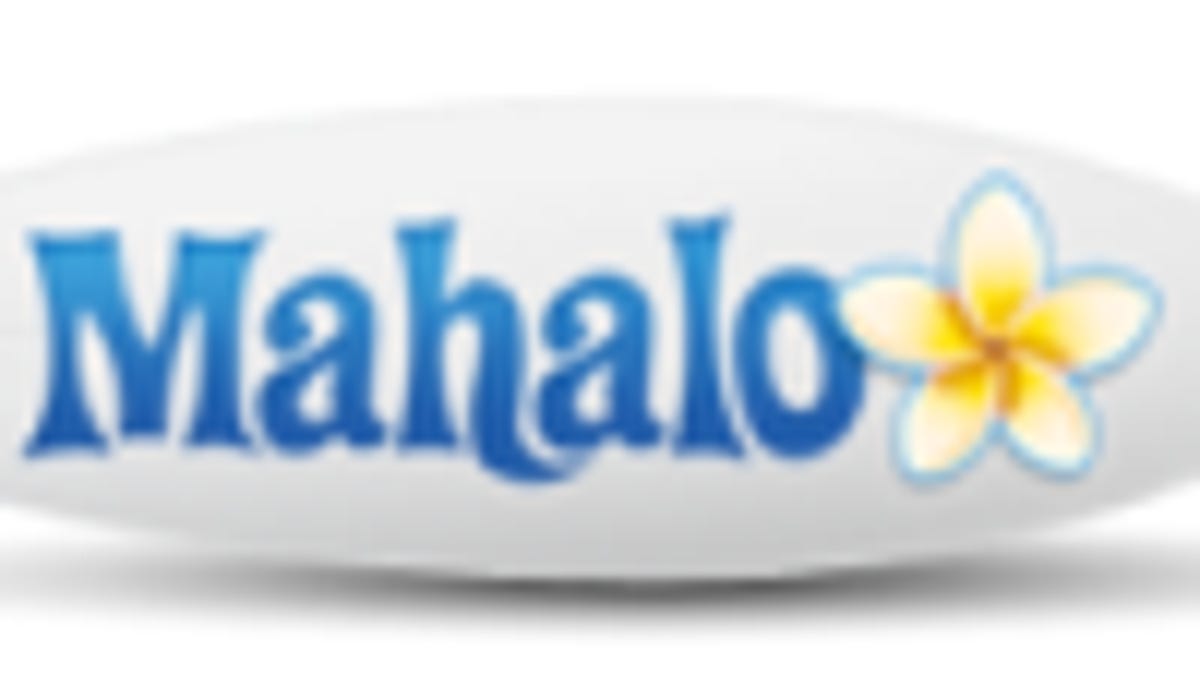Mahalo 2.0 is Wikipedia plus money
The curated search result service opens up its pages to user edits and pays them by sharing advertising revenues.

Jason Calacanis, CEO of Mahalo, is modifying his business once again. He's taking a page from Wikipedia and opening up his curated topic pages to user editing. The big difference from Wikipedia is that he's melding this idea with the Mahalo Answers business model in which users are paid for contributing content to the site.
"It's fine that Wikipedia believes that writers shouldn't be compensated," Calacanis told me. "We need to get out of the page creation business and move to the next level."
Here's how Mahalo 2.0 is going to do it:
Registered Mahalo users will be able to "claim" pages on the site. For example, if you're an expert in Betty Boop trivia, you'd claim the Betty Boop page. You'd be responsible for keep the content on the page relevant and fresh. In return, you will get half the advertising revenue (Mahalo uses Google AdSense) that the page generates.
This means that not only will Mahalo's users be creating the content, but since they're invested in the traffic to their pages, they'll likely be doing some of their own marketing for the content as well--on Twitter, Facebook, and so on.
There will also be a way to embed a Mahalo topic widget in another page. Calacanis will pay users a small amount for widget impressions, but the real goal for these widgets is to drive traffic back to the main Mahalo site.
Pages are given out only to registered users, and the number of a pages a user can claim depends on their "belt" level on the service (white belts can claim only two pages, for example). If a user who owns a page doesn't keep it maintained, then the system can take it back and puts in on the leaderboard where another user can grab it.
In Mahalo 2.0, that's the extent of ownership transactions. In 2.1, maybe, users will be able to sell the pages they're maintaining. Calacanis speculated that Mahalo might take a fee for enabling the transfer of control from one user to another.
A necessary part of the new system is Mahalo's new and improved authoring interface. Replacing MediaWiki, which Mahalo has been using to date, the new tool builds the framework of a Web page from search results, lets the page owner pin items from search to the page, re-order items, and easily add explanatory text and media.
As he's done before (with Weblogs Inc. and with Mahalo so far), Calacanis is blending emerging media types with a clever application of raw capitalism. His theory, in keeping with his past ventures, is sound. The trick is the execution. For Mahalo, that hinges on people landing on the user-created pages because they are directed there from other search engines' results pages. Mahalo relies on search engine optimization, just as About.com did when it got started.
Opinions on Mahalo's success on this effort so far differ. Calacanis, of course, quotes increasing traffic and engagement results. Most people I talk to, though, don't see Mahalo results pop up in their daily search engine use and can't remember the last time they used the site.
My experience is more positive. I see Mahalo popping up from time to time. When I visit its pages, I find them generally very useful. Regardless, giving end users direct benefits for editing Mahalo pages will encourage them to take on some of the marketing expenses themselves, by promoting their pages. Assuming those promotions get picked up in search engines, it could help make these pages more visible. So this scheme should work better for Mahalo than its current model.
Mahalo may never be a household name like Google or Wikipedia. But it doesn't need to be. With a devoted cadre of users editing its most popular pages, and with successful search engine optimization being driven by Mahalo staffers and by users, the service should be able to sustain itself.

